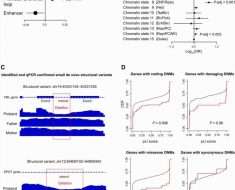A multidisciplinary, international group of experts has recommended changing the way clinicians and patients describe cognitive changes experienced in some patients after anesthesia and surgery. The recommendations are being published simultaneously in six peer-reviewed journals including, Anesthesiology, the official medical journal of the American Society of Anesthesiologists (ASA), Acta Anaesthesologica Scandinavica, Anesthesia & Analgesia, British Journal of Anaesthesia, Canadian Journal of Anesthesia and the Journal of Alzheimer’s Disease.
Changes in cognitive function after anesthesia and surgery can take many forms and may last for highly variable periods of time—days to years. Up until now, all these complications have been termed “postoperative cognitive dysfunction” (POCD). POCD is most common in patients 65 and older.
The experts recommend that a new umbrella term, or nomenclature, for impairment or change in cognition associated with anesthesia and surgery be given: Perioperative Neurocognitive Disorder (PND). PND is then further classified as delirium, delayed neurocognitive recovery (dNCR), and mild or major neurocognitive disorder (NCD) after surgery, depending on timing, duration and magnitude. Patient and/or caregiver subjective assessment of the patient’s cognitive function would also be taken into account. These recommendations are based on accepted nomenclature that already exists in the Diagnostic and Statistical Manual of Mental Disorders (DSM-5), the handbook used by health care professionals in the United States, and much of the world, as the authoritative guide to the diagnosis of mental disorders.
“The majority of patients have no apparent cognitive issues after surgery, but some patients describe having what they call ‘brain fog,’ which can last for weeks to months, but then generally clears up after that,” said Roderic G. Eckenhoff, M.D., one of the authors and vice chair for scientific activities of ASA’s Ad Hoc Committee on Perioperative Brain Health Initiative. “They’ll say, ‘I can’t do the crossword puzzle anymore, or I can’t find my car anymore.’ There has been no term in the DSM-5 to describe this reversible form of cognitive complaint. Delayed neurocognitive recovery, or dNCR, is recommended for what is, in fact, the most common form of PND. These changes in nomenclature will allow physician anesthesiologists and other medical providers to speak the same language when it comes to postoperative cognitive changes in the elderly. It will help clinicians discuss patient risk and prognosis.”
PND includes:
- Cognitive decline diagnosed preoperatively (neurocognitive disorder (NCD))
- Any form of acute event that occurs in the hospital up to one-week post-procedure or until discharge (whichever occurs first), such as postoperative delirium (POD)
- Cognitive decline with symptoms diagnosed up to 30 days after the procedure (delayed neurocognitive recovery (dNCR))
- Cognitive decline with symptoms diagnosed between 30 days and 1 year postoperatively (mild or major neurocognitive disorder (NCD)).
“Physician anesthesiologists rarely talk with patients about postoperative cognitive complications following anesthesia and surgery,” Dr. Eckenhoff said. “Yet this is the most common complication in older patients. We need to talk with patients about this issue, to prepare them for what may occur as well as allay any fears that this may represent a progressive condition. The new nomenclature will, in part, help us do that.”
Although not explicitly designed for researchers, the new nomenclature also will provide a framework for investigators to examine the incidence, risk factors and natural history of PND, he said.
In an editorial accompanying the report, Daniel J. Cole, M.D., ASA past president and Evan D. Kharasch, M.D., Ph.D., Anesthesiology editor-in-chief, note the causes of the various types of change in cognitive function after surgery remain elusive and is likely multifactorial, including surgical stress, other patient illnesses, brain frailty, anesthetics and other drugs. They say changing the nomenclature is an important step in addressing the problem of postoperative changes in brain function. “Absent a common lexicon, no branch of science—postoperative brain function included—can effectively move forward to a greater understanding of the roots of the problem and develop effective therapeutic targets and strategies,” they wrote. Additionally, Drs. Cole and Kharasch note the nomenclature recommendations “may be useful, but are not yet complete,” noting that some terms are used imprecisely and are not evidence-based.
Source: Read Full Article





